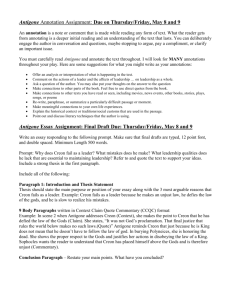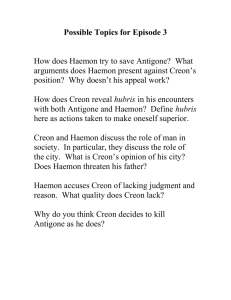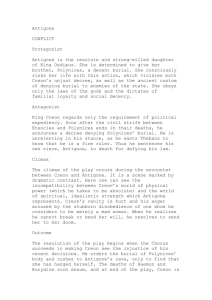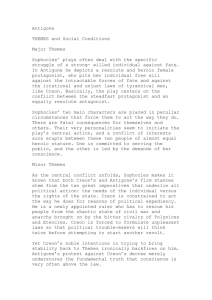Antigone Note and Discussion Guide Complete
advertisement
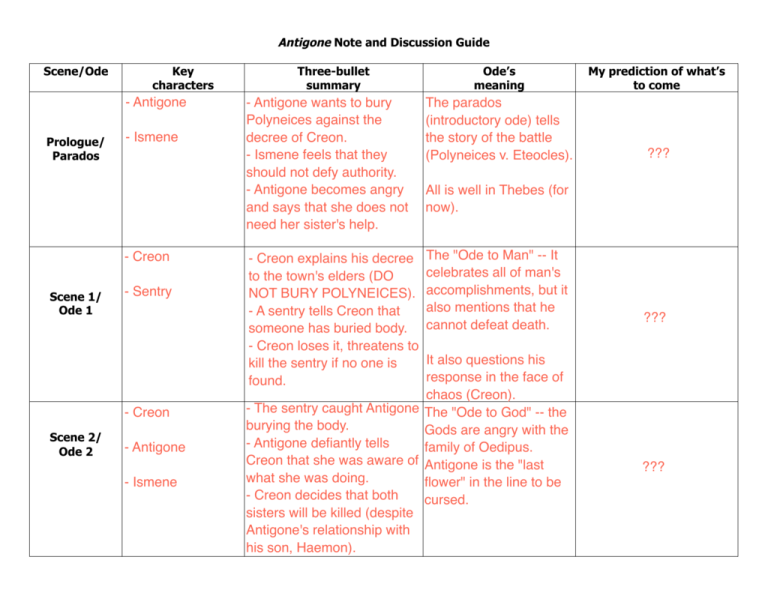
Antigone Note and Discussion Guide Scene/Ode Key characters - Antigone Prologue/ Parados - Ismene - Creon Scene 1/ Ode 1 - Sentry - Creon Scene 2/ Ode 2 - Antigone - Ismene Three-bullet summary Ode’s meaning My prediction of what’s to come - Antigone wants to bury Polyneices against the decree of Creon. - Ismene feels that they should not defy authority. - Antigone becomes angry and says that she does not need her sister's help. The parados (introductory ode) tells the story of the battle (Polyneices v. Eteocles). ??? - Creon explains his decree to the town's elders (DO NOT BURY POLYNEICES). - A sentry tells Creon that someone has buried body. - Creon loses it, threatens to kill the sentry if no one is found. The "Ode to Man" -- It celebrates all of man's accomplishments, but it also mentions that he cannot defeat death. All is well in Thebes (for now). It also questions his response in the face of chaos (Creon). - The sentry caught Antigone The "Ode to God" -- the burying the body. Gods are angry with the - Antigone defiantly tells family of Oedipus. Creon that she was aware of Antigone is the "last what she was doing. flower" in the line to be - Creon decides that both cursed. sisters will be killed (despite Antigone's relationship with his son, Haemon). ??? ??? - Creon Scene 3/ Ode 3 - Haemon - Antigone Scene 4/ Ode 4 - Chorus (citizens) - Creon - Tieresias Scene 5/ Ode 5 - Creon - Choragus - Messanger Exodus - Creon - Eurydice ! - Creon interprets Haemon's show of respect as agreement. - Haemon asks him to be flexible. - The two end up in an argument; Creon will lock Antigone away. - The "Ode to Love" -highlights power of love in creating this rift between father and son - Antigone laments her death as she is led from town. - The citizens tell her that her death is of her own doing. - Creon impatiently tells the guards to take her away. - The fourth ode alludes to other ancient myths that mirror Antigone's fate (imprisonment). - Tieresias advises Creon to change his mind. - Creon accuses him of bribery and false prophecies. - Tieresias warns of suffering for Creon. - Creon changes his mind (at the urging of Choragus). - The final ode (paean) serves as the Ode to Dionysus, asking for mercy on the city of Thebes. We find out: - Haemon killed himself (after trying to kill Creon). - Antigone hanged herself. - Eurydice stabbed herself. - Creon is left to suffer with the consequences of his actions. ------ ??? ??? ??? ------



